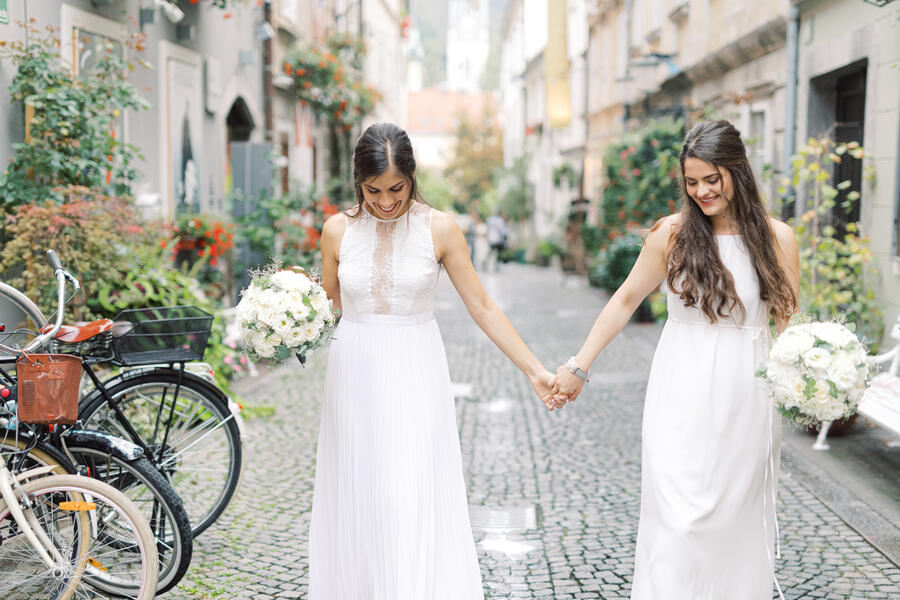Rainbow Cities Network 2020 exhibition
On 17 May we are observing the International Day Against Homophobia, Transphobia and Biphobia with the aim of overcoming prejudices and admonishing violence and discrimination against the LGBT+ community.
The City of Ljubljana marked the day by publishing an international photographic exhibition of the Rainbow Cities Network, which was established in 2013 on occasion of the International Day against Homophobia and Transphobia. The network, which today includes over 30 cities, aims to present different local practices in the area of equality and anti-discrimination for LGBTIQ persons, to learn from each other, and to develop a joint strategy. In this year’s exhibition with the title »Lesbian Visibility« 16 rainbow cities are taking part, among them Ljubljana with the photo titled »Our Street« of the newlyweds Klara an Maša walking on their favourite street.
Wolfgang Wilhelm, curator of the exhibition, wrote:
Individual movements to promote minority and human rights as well as queer initiatives have a different history in every country and every city, but there are three aspects they all have in common:
Firstly, they were formed as a reaction to severe grievances – to persecution, repression, discrimination, individual and collective suffering.
Secondly, they obviously did not just come out of the blue, but were usually launched by a small number of committed individuals, who made allies and found ways to highlight these grievances in society. They had the courage to fight for a better society, and often did so at their own disadvantage.
Thirdly, the individual movements cannot be regarded as separate from each other, or even opposed to each other. Every liberation movement essentially builds upon and reinforces all previous and parallel human rights movements. The present exhibition focuses on Lesbian Visibility, highlighting a topic that our patriarchal society is often reluctant to see: love between women.
What does it mean to be lesbian? Is it an identity, or a relationship between women? A private matter, or part of the women’s movement? Is it feminist? Is it a concept? Part of the LGBTIQ movement? Is it queer? Is it part of the city, politics, society, the community? Is it a task and cross-sectional challenge for a modern city? – Yes, it is.
Being lesbian is what it is – let’s make it visible!
You are invited to take a virtual tour of the exhibition:
-
Lesbian Visibility 2020 exhibition (pdf, 49 MB)


